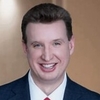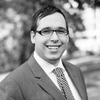Welcome to BARBRI, the trusted global leader in legal education. Continue to access the same expert-led Strafford CLE and CPE webinars you know and value. Plus, explore professional skills courses and more.
About the Course
Introduction
This CLE course will review the efforts by the ABA and many state bars to regulate against “harassment” and “discrimination” in an attorney’s speech or conduct, the debate over ABA Model Rule of Professional Responsibility 8.4(g), and when a state can legitimately regulate an attorney’s speech related to the practice of law. Many recent efforts at excising “harassment” and “discrimination” have been criticized for violating the First Amendment because they may prevent an attorney from speaking out on controversial and important topics and targeting speech outside of the ordinary course of a lawyer’s court-related duties, such as a conversation at a bar dinner or a presentation at a CLE event. Now, a federal district court in Pennsylvania has issued a preliminary injunction against one state’s attempt to regulate such speech and conduct. Greenberg v. Haggerty, Case No. 20-3822 (E.D. Penn. Dec. 8, 2020).
Description
In 2016, the American Bar Association proposed Model Rule 8.4(g) which makes it professional misconduct to “engage in conduct that the lawyer knows or reasonably should know is harassment or discrimination on the basis of race, sex, religion, national origin, ethnicity, disability, age, sexual orientation, gender identity, marital status or socioeconomic status in conduct related to the practice of law.” ABA Model Rule 8.4(g). The rule utilizes a broad definition of “conduct related to the practice of law” which includes not only “representing clients; interacting with witnesses” and other in court activities, but also “participating in bar association, business, or social activities in connection with the practice of law.” Id. Comment 4.
The advent of this rule immediately generated intense controversy. Many states expressly rejected the adoption of Model Rule 8.4(g). And a wide variety of First Amendment and Constitutional Law scholars have written criticizing Model Rule 8.4(g) for its potential to stifle or censor attorney speech. In the first few years after the ABA put the rule forward, only Vermont adopted it wholesale. But in the past few years, a few additional states including Pennsylvania and New Mexico have adopted versions of the rule.
The Pennsylvania rule was challenged last year shortly after its adoption. A federal district court in Greenberg v. Haggerty, Case No. 20-3822 (E.D. Penn. Dec. 8, 2020), and found Pennsylvania's version of ABA Model Rule of Professional Responsibility 8.4(g) to likely be unconstitutional and issued a preliminary injunction against its enforcement.
Listen as this panel of First Amendment experts discusses the regulation of attorney speech, the legality of Model Rule 8.4(g), and what Greenberg v. Haggerty, teaches going forward.
Presented By

Mr. Blevins litigates cases involving the First Amendment, property rights, and the separation of powers.

Mr. Eckler’s practice has evolved from primarily representing insurers in coverage disputes to managing complex litigation in which he represents a wide range of professionals, businesses and tort defendants. His record of success includes numerous summary judgments, several successful trial results and multiple favorable appellate results. His coverage practice for insurers and the insured involves CGL and personal lines policies, issues involving the duties to defend and indemnify, bad faith and the application of exclusions.

Mr. Ortner joins FIRE after four years litigating on behalf of free speech and equality under the law at the Pacific Legal Foundation. He has written and spoken extensively about First Amendment issues, including in The New York Times, The Hill, and The Epoch Times. Mr. Ortner's law review articles on free speech have been published in the Catholic University Law Review, BYU Law Review, and Virginia Journal of International Law among others. He is a member of the Virginia and California bars. He is also admitted to practice before the Supreme Court of the United States and several United States Courts of Appeals and United States District Courts.
-
This 90-minute webinar is eligible in most states for 1.5 CLE credits.
-
An excellent opportunity to earn Ethics CLE credits. Note: BARBRI cannot guarantee that this course will be approved for ethics credits in all states. To confirm, please contact our CLE department at pdservice@barbri.com.
-
Live Online
On Demand
Date + Time
- event
Thursday, April 22, 2021
- schedule
1:00 p.m. ET./10:00 a.m. PT
- Regulation of lawyer speech
- History of Rule 8.4(g)
- Constitutional concerns under Rule 8.4(g)
- Due process
- First Amendment free expression
- Freedom of association and religion
- Vagueness
- Understanding when speech or conduct is or is not "related to the practice of law"
- NIFLA and the regulation of occupational speech
- Commercial issues
- Political speech
The panel will review these and other key issues:
- What is the difference between regulating conduct and speech in light of the Supreme Court's decision in NIFLA v. Becerra, 138 S. Ct. 2361 (2018)?
- What do key terms in Model Rule 8.4(g) mean?
- What are the First Amendment concerns that Model Rule 8.4(g) raises?
- How the rule might be revised to obtain its goals
Unlimited access to premium CLE courses:
- Annual access
- Available live and on-demand
- Best for attorneys and legal professionals
Unlimited access to premium CPE courses.:
- Annual access
- Available live and on-demand
- Best for CPAs and tax professionals
Unlimited access to premium CLE, CPE, Professional Skills and Practice-Ready courses.:
- Annual access
- Available live and on-demand
- Best for legal, accounting, and tax professionals
Unlimited access to Professional Skills and Practice-Ready courses:
- Annual access
- Available on-demand
- Best for new attorneys
Related Courses

Working Remotely and Attorney-Client Privilege: Legal Ethics
Available On-Demand

Representing Fiduciaries: Legal Ethics for Counsel and Pitfalls to Avoid
Available On-Demand
Recommended Resources

Navigating Modern Legal Challenges: A Comprehensive Guide
- Business & Professional Skills
- Career Advancement

Beyond Law School: Tackling the Realities of Modern Legal Practice
- Learning & Development
- Business & Professional Skills
- Career Advancement

